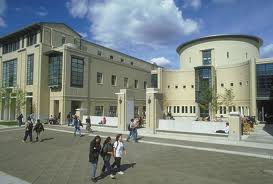Bias Among Industrial and Educational Leaders?
From the Article by Deanna Garcia, WESA public radio, April 4, 2013
The Department of Energy estimates that gas from shale is expected to account for roughly half of the country’s natural gas supply by 2040. A symposium at Carnegie Mellon University on April 4th examined the role of shale gas in manufacturing, transportation and the environment.
“Shale gas extraction does have impacts,” said CMU President Jared Cohon. “It’s simply wrong to say it doesn’t or to minimize them. They’re obvious — if nothing else they disturb the land. There are also clearly water impacts, air impacts, and we have to acknowledge that and do something about that.”
But Cohon went on to say that developers and those in the industry have the best intentions.“It’s simply not the case that any corporate CEO I know wakes up in the morning and says, ‘How can I despoil the environment today?’ That’s not the way they operate,” he said.
The symposium began with a panel discussion on the manufacturing side of the gas boom. “Today we’re celebrating a manufacturing renaissance enabled by this amazing gift of affordable natural gas, a phenomenon all but unimaginable five short years ago,” said panelist Peter Molinaro, a VP for the Dow Chemical.
The panel laid out some of the benefits of the gas boom, including an increase in jobs in the region. Panelist Gerald Holder, US Steel dean of engineering, said jobs go beyond the gas fields. “One of the real opportunities is not just to the exploration and production companies that produce gas, but to the companies that contribute to the infrastructure required to produce the gas,” Holder said. “Last year the Marcellus Shale industry created about 50,000 jobs here and is expected to create about 1 million jobs in the mature manufacturing industry.”
But the panel members said that while growth is expected to continue, it can be stifled. “Bans and excessive regulation on fracking can be a problem,” Molinaro said. “Early, excessive retirement of coal-fired power plants and the prospect of exporting large amounts of natural gas in the form of LNG (liquefied natural gas) – you could create a recipe that disconnects demand from supply and may return us to some of the volatility we experienced in the last decade.”
CMU President Cohon said a balance needs to be struck between development and environmental protection, but added regulation is absolutely needed in the industry. CMU recently released a policy maker’s guide which outlines the need for a government-university-industry research initiative focused on shale gas development and the environment.
The other panels focused on the role of natural gas in transportation and environmental impacts from development and production. While panel members focused on issues relating to southwestern Pennsylvania, they said as shale gas production spreads across the U.S., the region will be seen as a model.
NOTE on CMU Reference Database: Carnegie Mellon University students have compiled a searchable “bibliography” of more than 1,000 documents online. Professor Robert Strauss enlisted a pair of graduate students to compile the database (click here) over the course of a year. It is searchable by keyword, category, geographic region, source, year or author affiliation, and it includes links such as testimony before legislatures, academic studies, maps compiled by regulators and industry sources, and explanatory materials provided by drilling companies on the “fracking” process.”


{ 2 comments… read them below or add one }
It looks like we who live and labor in the gas fields are having some success. At least problems are being acknowledged publically in a vague way.
Still much more progress is needed to get to the point where legislators, regulators and industry will listen with humanity and put something other than minimum cost of production and profit per dollar of investment as the criteria of success.
Marcellus Shale is very popular now a days, they offer a lot of jobs that could help people and give them opportunity.